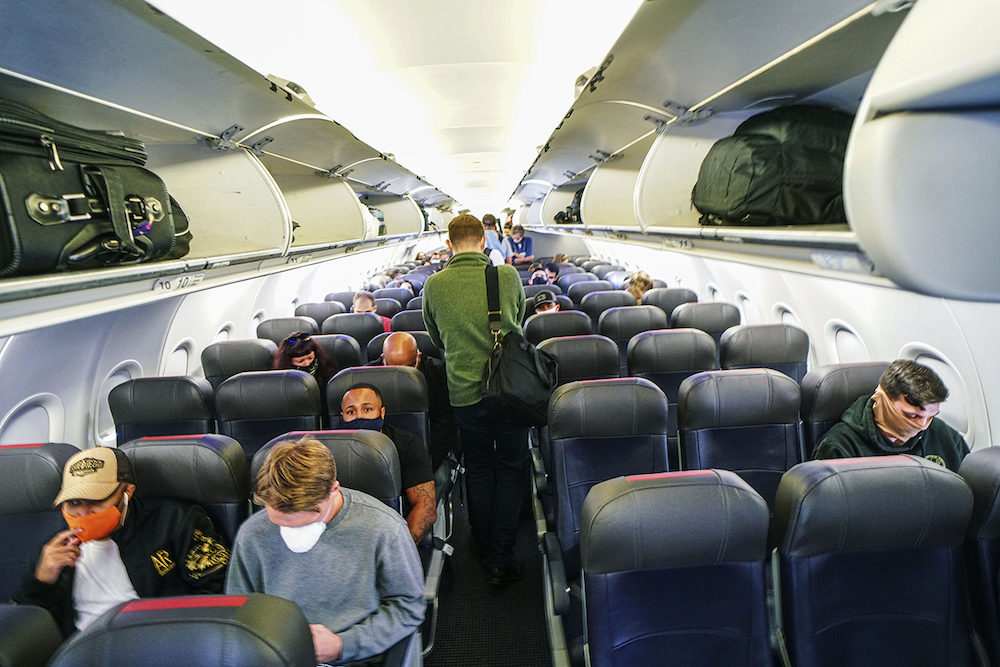COVID-19 and airports taken apart can cause mountains of anxiety. Putting them together just makes it worse for many.
All the questions … do you need to be vaccinated to go to a certain country? Do you need to be vaccinated to get on a plane? What happens if you get to the airport and discover an hour before you’re supposed to take off that you need a negative test to do so?
Airports want people to know the lay or the land well in advance. Get online, make the phone calls, and know what’s expected of you. Traveling in 2021 doesn’t have to feel like a horror movie.
“I’ve been traveling back and forth to the big island in Hawaii, about once every other month since they reopened,” said Tami Gardner, of Discovery Bay. “Prior to July 8, they required testing three days before we got on the plane, and again once we arrived on island. It was easy, well-organized and really helped keep the cases super low. Once they removed the testing the cases have skyrocketed. I’m going again in two weeks and no testing is required now that I’m vaccinated. But I will test anyway just to be safe.”
All airlines are requiring passengers to wear masks.
San Francisco International Airport
At San Francisco International Airport (SFO), inbound travelers are required to have a negative test prior to boarding their plane to the Bay Area, airport spokesman Doug Yakel said. Those leaving the Bay Area may as well, depending on where they’re going. To check on restrictions by country, Yakel suggests going to https://www.iata.org/en/programs/covid-19-resources-guidelines/destination-tracker/.
SFO currently has multiple testing sites in place at the airport, with different price points (people can check at https://www.flysfo.com/travel-well/covid-19-testing). The tests vary as far as getting results, anywhere from 15 minutes to three days. There’s a laboratory on site. Appointments are recommended, but walk-ins may be accepted if they get there before 4 p.m. A valid boarding pass or airline reservation is required.
Yakel said, so far, the process has gone well, without any incidents.
“We’re averaging about 500 tests per day,” he said. “No wait issues, as testing requires an appointment. We expect testing to be a part of the airport experience for the near future and beyond.”
Oakland International Airport
Oakland International Airport has two testing sites — one curbside and one at North Field on Earhart Road. Spokesperson Kaley Skantz said the program has administered more than 100,000 tests since starting in 2020.
“Testing is available for passengers, employees, and members of the community, and it is free for U.S. residents,” Skantz said.
Appointments still need to be made at http://www.bayareacovid19testing.com.
Oakland’s airport and its testing partner, CityHealth Urgent Care, were certified by the Hawaii State Department as a “Trusted Testing Travel Partner.” Hawaii requires passengers 5 years and older to take a nucleic acid amplification test from a CLIA-certified lab withing 72 hours of the final leg of departure and produce a negative test to avoid the state’s 14-day mandatory quarantine. Only results from trusted partners are accepted.
Oakland airport officials urge travelers to Hawaii to get test results two to three days before departure. Passengers using airport testing should schedule appointments at least three hours before their flights. Results can be available in 15 minutes.
Oakland was also the first U.S. airport to sell COVID-19 testing kits in vending machines, Skantz said.
Mineta San Jose International Airport
Mineta San Jose International Airport is also working with pre-approved testing services, like CityHealth, for Hawaii travelers who want to avoid the state’s quarantine if flying carriers Hawaiian, Alaska, and Southwest. There is a fee, which varies. Carbon Health does on-site testing for other destinations, with fees ranging from $135 to $165 (no insurance taken).
San Jose was the first California airport to receive Global Biorisk Advisory Council (GBAC) STAR facility accreditation. For an airport to do so, it must have the highest levels of cleanliness and safety and comply with 20 elements, ranging from standard operating procedures and risk assessment strategies to emergency preparedness.
For more information on San Jose International Airport’s testing and other COVID-19-related procedures, people can go to https://www.flysanjose.com/coronavirus#airline-policies.
